- Home
- Jess Walter
Don't Eat Cat Page 2
Don't Eat Cat Read online
Page 2
I simmed our friends and her parents, her old coworkers, but no one had heard from Marci. I even went to see her old boyfriend, Andrew, at his club in what was still called the U District, even though the state university there had shut down years earlier. Andrew was bald and lean—a little taller than me, with a long neck and cavernous eyes, pockmarks on his sunken cheeks. Nonbies always have that feral look, as if they’ve just finished running a road race in their clothes, or they haven’t slept in months. We had met once, in passing, but I would never have picked him out of a lineup, so many years had been put on his face. Andrew came from behind the bar and I could smell the nonbie on him—like a soup of sweat, smoke, and old bacon. He stared at my suit and tie, at my wool coat.
“Slumming, Owen?”
I looked around the seedy club but said nothing.
He crossed his arms. “What do you want?”
I explained that Marci had begun using Replexen and that she was missing. I watched his face to see if maybe he already knew what I was telling him. Andrew was wearing a black leather coat, too short on his arms. I saw one of his hands twitch. He stared at the door to his club. He let out a deep breath. “Was she snorting it?” he asked quietly.
“Needles,” I said. His eyes closed, and I realized that he hadn’t seen her after all. He asked about her skin. “Yes,” I said, “milky.”
“You didn’t notice?” he asked. Then he looked down. “Sorry.”
Even for nonbies, Replexen use shortens your lifespan. They are hard years spent on that shit. I followed Andrew’s weary eyes as he looked around his own club … painted windows and scarred wood on the tables and floors. Did he wonder, How did I get here? This wasn’t a full zombie club; it catered more to nonbies and first-timers; no, it wasn’t hell, but it was the waiting room.
“I haven’t seen her,” Andrew said, and he turned and went back behind the bar. I could’ve just simmed him my number, but I wrote it on a piece of paper and slid it across the bar. He looked up. He was chewing on one of those pocked cheeks, and it looked as if he was trying to say something. I left before he could.
My guess was that Marci had disappeared into what was already starting to be called Z Town. And if that was the case, of course, I was too late. Seattle was one of the worst cities for derelict zombies—old Fremont had been turned over to the hardcore clubs, brothels, and shooting galleries, to bars that supposedly released rodents during happy hour—places that made Andrew’s shitty club seem like a Four Seasons.
For two years after that, I waited for Marci to come back. But it wasn’t until my last doctor’s appointment and the bad news I got—it wasn’t until after Brando snapped and the death of that poor zombie girl—that I finally felt compelled to go to Z Town and look for her, for the only woman I have ever loved.
4
Wendy Gasson was the last of my neighbors to have a pet: Fidel. He was an indoor cat, and she was careful about making sure he didn’t get out, but one day, as Fidel sat there by the window watching birds, Wendy came in with the groceries and the cat bolted out of the apartment, down the steps, through the door, and into the street.
After the initial sim-tweets about hypo-ETE, a new sector of the economy had appeared: private eyes who went into Z towns and looked for missing kids and spouses and took them to quack deprogrammers, or surgeons, a whole industry of people who promised—lied, really—that they could reverse the effects of long-term Replexen abuse. The sleaziest of these P-Is would even take cat cases, usually for elderly people who just couldn’t come to terms with the fact that Fluffy was seriously not coming back. Some of the private eyes just went to a pet store and got a tabby to match the pictures (“No, this is Fluffy; I’m sure of it”). Wendy told me she’d tried to hire one of these guys off the Craig-sim to find Fidel, but the guy only went after people. “Lady,” he said, “your cat’s gone.”
I got the detective’s name from Wendy, but I didn’t contact him right away. I tried everything else I could think of first: simming Marci’s friends and family, taking out Craig-sim ads. I even went back to Andrew’s club in the U District, but it was closed; a Dumpster Divas secondhand food store was now in its place. Nobody knew anything. I had no choice.
So I simmed the detective and made plans to meet him outside my doctor’s office. I stepped out into the cool air, chest still burning from the radiation, when a tall, gray guy in a long suede jacket stepped forward. “I’m Mick.”
“Owen.”
Mick was in his fifties, with a high forehead and severe blue eyes. I hadn’t explained much in my tweet, but he didn’t seem to want details. I followed him to an antique red hybrid and we climbed in. I asked where he found gas for this old car, and he just smiled at me, like it was proof of his investigative powers.
It was a flat rate, he explained as we drove, five thousand up front.
I pulled out my iVice to debit him the five grand, but he shook his head. “Cash,” he said.
So we went to the nearest KFC/B-of-A, where I was preapproved for the highest food debits. I lied on the application and said it was for dinner at a nice restaurant. Mick counted the five grand, folded the bills, tucked them in his waistband, and started driving. He pulled a small bottle of homemade hooch from beneath his car seat and handed it to me. I took a drink. Vodka.
I pulled out my iVice to show him the pictures of Marci, to tell him about her, but he held up his hand. “Save it till we get there.” We drove quietly along Westlake.
“Get where?” I asked.
He chuckled at something. “Hey, what’d one zombie say to another?”
I stared at him. “What did you say?”
“What … did one zombie say to the other?”
“Is … that a joke?”
“Dystopia? What dystopia? Dis da only ’topia dere is.”
I stared at him.
“You do know what a dystopia is, right?”
I said I did.
It was dusk as we approached the Fremont Bridge. Even before Fremont became Z Town, the construction of the Aurora Tunnel had cut down on traffic crossing into Fremont. Now it was six o’clock and there were maybe a dozen cars on the road. The bridge’s cross braces were covered with holo-boards warning about the dangers of Replexen abuse and reminding people it was illegal to transport “cats and other pets” into Fremont, and finally there was the big black-and-white sign: “WARNING: Entering Hypo-ETE Concentration District.”
Mick held out the bottle again. “Couple looking for an affordable condo in Seattle calls a real estate agent,” he said. “Agent says, ‘I know a place, five rooms, city views. Bad news, it’s in Zombie Town. Good news? It’s very pet-friendly.”
I took a drink of his vodka, my hands shaking. The streetlights in Fremont were tinted blue—it’s calming for them—and this gave everything a strange underwater glow, like an aquarium. There were few people on the streets, zombie or otherwise, the buildings nondescript, simple brick storefronts. We turned and started back toward the water. We passed Gas Works Park, and I imagined I saw figures moving in the shadows of the hulking works, flashing matches, bits of skin.
“How many zombies does it take to screw in a lightbulb?” Mick asked.
I closed my eyes. “Please,” I whispered.
“UUUUNNNNGGG!” he said.
We turned again, and again, and back again, down a street with no lights, and I had the sense Mick was driving serpentine to make me disoriented. Finally, we pulled up in front of a dark four-story building.
“This is it,” Mick said.
I looked up at the building.
“You got those pictures of her?” he asked.
I held up my iVice.
Mick nodded and got out of the car. I followed him. We stood in front of the building. I could hear yowling in the distance. I shivered as I stared at the dark building in front of us. “You haven’t asked me a single question about Marci,” I said. “What makes you think she’ll even be here?”
Mick shrugged. “Wh
at’s the worst part about having sex with a zombie?”
I put my hands up. “Please. No more jokes.”
“Burying your cat afterward.”
We climbed the stairs and pushed open a heavy door. We came into a dimly lit foyer, closed heavy doors on either end. A wall-mounted eye cam pointed at us. Mick held up a pair of thousand-dollar bills. He crinkled them. Then he opened his coat for the camera, I guess to show that he had no weapons. Then he elbowed me. I did the same, opened my coat.
After a moment, an electronic lock clicked and one of the doors opened and a muscular young zombie kid in baggy shorts, a sweatshirt, sunglasses, and flip-flops came through. At first I thought it was Brando, but of course it wasn’t.
“Follow me,” the zombie kid rasped.
I looked at Mick. “Aren’t you coming?”
“What’s the difference between a zombie and a bagel?” Mick asked. I just stared at him. “UUUUNNNNGGG!” he said again.
The zombie kid grunted a kind of laugh. “Good one, Mick.”
Mick shrugged. “It kinda works with anything. UUNNGG!” Then he turned and went back outside. I watched him go, wondering whether I should turn and follow him out. Instead I hurried after the zombie kid. It was cold in the long hallway, clammy. Closed doors lined the walls; strange sounds came from the rooms. At the end of the hall, we came to a set of doors that opened onto a huge ballroom, a lounge of some kind—heavy timbers and ornate molding, like an old social club, an Elks Lodge maybe, smoky, filled with the movements of people on overstuffed leather couches and chairs, and as my eyes focused I could see a bar at the front, and a couple of zombies serving drinks. Everywhere else, white-skinned women in scanty clothing lounged around, talking to men like me.
It was a brothel.
“This is a mistake,” I said to the kid.
The zombie kid turned, and at first I thought he was staring at me, but he was looking at someone over my shoulder. “Dina,” said the zombie kid.
“You have pictures?” a woman asked from behind me.
I turned. The woman, Dina, was in her thirties, with shimmery black hair and pale skin, her eyes that cloudy blue but somehow not entirely gone zombie yet, or just controlled in some way. Like the kid who had led me back here. In fact, there seemed to be a whole range here—not just zombies and nonbies but people who seemed to function under the effects of the drug.
“You have pictures of your wife?” Dina said again, her voice just betraying the slightest hint of hypo-ETE gravel.
“My girlfriend,” I said.
She nodded and smiled warmly at me.
I pulled out my iVice and fumbled with it. “I don’t know if she’s … I mean … you don’t think Marci is …” I glanced around at the zombie prostitutes all around us. One of them took a man by the hand and led him away.
Dina, the zombie madam, reached out and steadied my hands. “It’s okay. Relax.”
Finally, I found a holo of Marci and me in our apartment—it was when she had short hair, but it was a great picture: her bemused chestnut eyes, long lashes, high cheekbones. The 3-D holo appeared blurry rising from my iVice, but then I realized it was my eyes. I wiped the tears. Dina smiled. “She’s so pretty.”
I nodded and pulled the image back into my iVice.
“How long ago?”
“Two years. She left … two years ago.”
Dina nodded again. She took my hand. I looked down at our hands, her white skin against my sun-scarred hand. She led me across the darkened room. I felt the breath go out of me. I was terrified I might see Marci here—and terrified I might not.
We arrived at one of the couches, in the corner of the lounge, where a short-haired zombie girl was sitting, staring off blankly. On the table in front of her was a hypodermic syringe with a needle, and a bag of powder. “Is that—” I pointed at the drugs on the table.
Dina said, “It makes some men feel better to know what it’s like.”
“Oh, no,” I said, “I don’t want that.” Then I looked closely at the girl on the couch, her brown hair and eyes, her high cheekbones. I reached out, tilted her chin up. “You know that’s not Marci,” I said.
“Of course it is.”
“No, it’s not even close. This girl’s ten years younger than Marci … at least three inches shorter.”
“Marci,” Dina said, and the zombie on the couch looked up at me.
“See. It’s her.”
The zombie girl looked back down again.
“Joe,” I said, and the girl on the couch looked up again.
Dina looked upset with me. She turned to face me, cocked her head, and took me in with those clear, translucent eyes. There was a hum to her, a vibration—like a dropped guitar. “What is it you want?”
“I told you. I want to find my girlfriend.”
She smiled patiently. She reached out and took my hand again in hers. “No. What do you want?”
“What?” My throat felt raw from the radiation. “I just want to talk to her.”
“About what?”
“I’m sick,” I said, and at that moment, the burning in my chest was overwhelming. “Cancer. I just found out a few weeks ago. Ozone sickness—third stage. My application for gene therapy was turned down, so they don’t know how much time … I wanted to see Marci and …” I couldn’t continue.
Dina stroked my hand with her slick white hand. “Apologize,” she said.
“What?” I felt the air go out of me.
“You wanted to apologize? It’s been two years, and this is the first time you’ve come here,” the black-haired woman said. And as she said it, I knew it was true, and I wasn’t sure anymore that the burning in my chest was coming from the radiation.
“You didn’t even look for her,” Dina continued, her voice entirely without judgment. “In fact, when she left, you were sort of … relieved. Weren’t you? Relieved that she left before it got bad.”
I tried to say no, but I couldn’t speak.
“You would never have said it out loud, but you knew where it was going and you didn’t know if you could do it. Take care of someone so … sick.”
The room swirled as the pale woman spoke.
“Your anger was useful. You told yourself that she wanted this; that she chose this; that she chose to throw her life away.”
I nodded weakly.
“But now you know … don’t you?”
I could barely see her through my teary eyes.
“Now … you know what we know.” Her voice went even lower. “That nobody chooses. That we’re all sick. We’re all here.”
“I …” I looked at the ground. “I just wanted to tell her …”
“Tell her what?” Dina asked patiently.
I wept into my hands.
“Tell her what?” Dina whispered as she rubbed my shoulder. Finally she turned to the other girl, sitting on the couch. “Marci?”
The zombie girl stood and grabbed the drugs off the table. “Tell her what?” Dina whispered.
“I’m here,” I managed to say to the short-haired girl.
Dina nodded and smiled at me. Then she gently took my hand and pressed it into the other girl’s pale hand. And Marci led me away.
About the Author
Jess Walter was a finalist for the National Book Award for The Zero and winner of the Edgar Allan Poe Award for Citizen Vince. His books have been translated into twenty-two languages, and his short fiction has appeared in Harper’s, Playboy, McSweeney’s, and the upcoming Best American Short Stories 2012. His sixth novel, Beautiful Ruins, will be published by HarperCollins in June, and first short-story collection, The New Frontier, is forthcoming in March 2013. A former journalist, he lives with his family in Spokane, Washington. Don't Eat Cat is his first zombie story.
Photograph by Hannah Assouline
About Byliner
Byliner publishes compelling works of original fiction and nonfiction written to be read in a single sitting.
Byliner.com features curate
d archives of the best fiction and nonfiction writing, and allows readers to easily find, share, and buy new and classic works by their favorite authors. To discover more good reads by great writers, please visit us at www.byliner.com.
Byliner Originals & Byliner Fiction
Great writers. Great stories. Readable in a single sitting.
Lifeboat No. 8 by Elizabeth Kaye
Sober Is My New Drunk by Paul Carr
I’m Starved for You by Margaret Atwood
One Way Forward by Lawrence Lessig
Death Comes to Happy Valley by Jonathan Mahler
The Secret World of Saints by Bill Donahue
Rules for Virgins by Amy Tan
A Killing in Iowa by Rachel Corbett
Three Cups of Deceit by Jon Krakauer
The Cartel by Taylor Branch
The Getaway Car by Ann Patchett
Cooking Solves Everything by Mark Bittman
Into the Forbidden Zone by William T. Vollmann
Sleeping with Famous Men by Elizabeth Kaye
Joan by Sara Davidson
Lady with a Past by Elizabeth Mitchell
The Fearless Mrs. Goodwin by Elizabeth Mitchell
Planet Killers by Tad Friend
The Baby Chase by Holly Finn
I Hope Like Heck by Michael Solomon
And the War Came by Jamie Malanowski

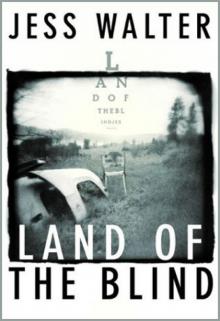 Land of the Blind
Land of the Blind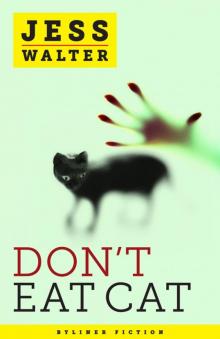 Don't Eat Cat
Don't Eat Cat Ruby Ridge: The Truth and Tragedy of the Randy Weaver Family
Ruby Ridge: The Truth and Tragedy of the Randy Weaver Family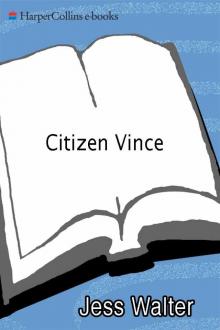 Citizen Vince
Citizen Vince Beautiful Ruins
Beautiful Ruins We Live in Water
We Live in Water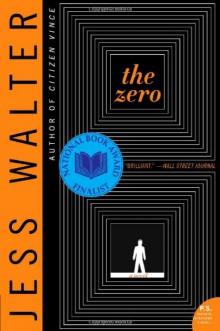 The Zero: A Novel
The Zero: A Novel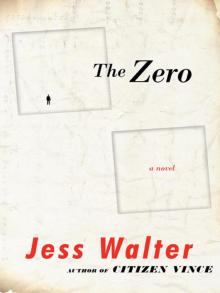 The Zero
The Zero The Cold Millions
The Cold Millions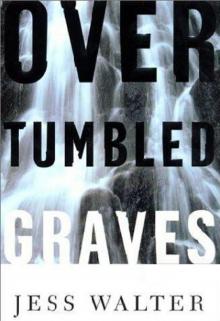 Over Tumbled Graves
Over Tumbled Graves We Live in Water: Stories
We Live in Water: Stories Ruby Ridge
Ruby Ridge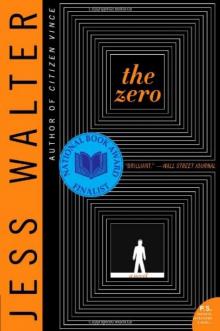 (2006) The Zero
(2006) The Zero (2004) Citizen Vince
(2004) Citizen Vince